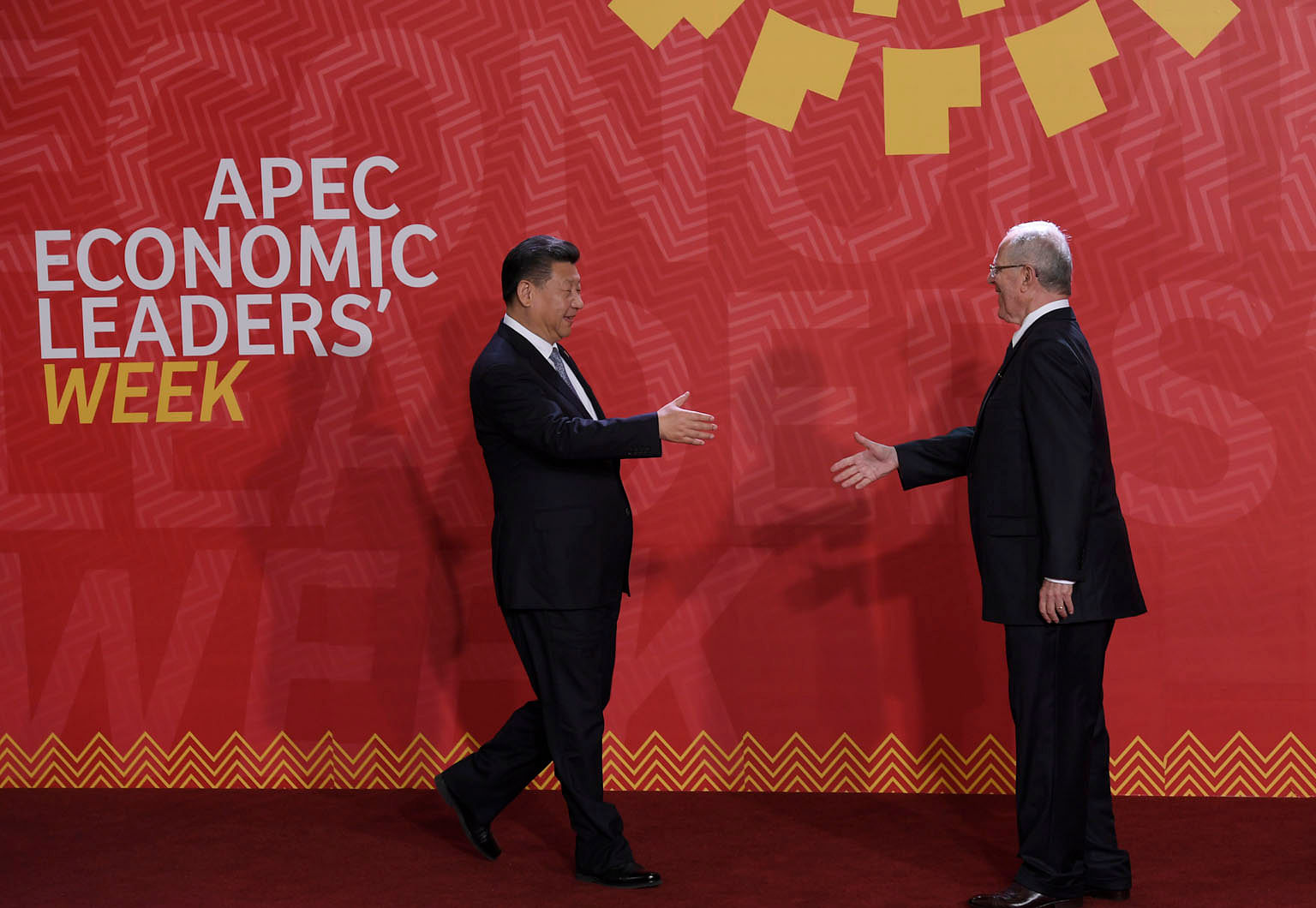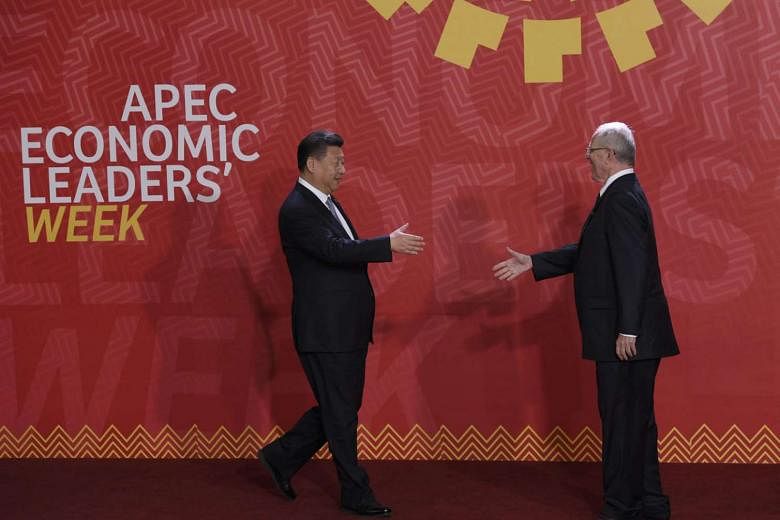On the surface, the recently-concluded Asia-Pacific Economic Cooperation (Apec) summit marked another routine exchange of pleasantries and pledges for greater economic cooperation among global leaders. Decades from now, however, it may be remembered as the dawn of America's irreversible decline as the pre-eminent power in the Asia-Pacific theatre.
After years of painstakingly reasserting American centrality in regional affairs, under its pivot to Asia strategy, outgoing President Barack Obama faced the excruciating task of putting a good spin to the recent electoral shock in his country, which has perturbed both allies and rivals alike.
The ascent of Mr Donald Trump, a real estate tycoon and reality show star with zero political experience, has raised serious concerns over the direction of US foreign policy, particularly in Asia. Meanwhile, Chinese President Xi Jinping wasted no time in presenting his country as a reliable anchor for greater economic integration across the region.
This was not how Mr Obama wanted to conduct his final foreign visit as US President. During the summit, he dedicated a disproportionate amount of time to explaining the potential trajectory of the United States under his successor, who has controversially promised to curb immigration and withdraw from free trade arrangements such as the Trans-Pacific Partnership (TPP) agreement.
"I can't guarantee that the President-elect won't pursue some of the positions that he's taken," Mr Obama told anxious reporters at the summit in Lima, Peru. "But what I can guarantee is that reality will force him to adjust how he approaches many of these issues. That's the way this office works."
In short, Mr Obama tried to convince the world that the weight of responsibility of (the presidential) office, not to mention the wide web of American strategic entanglements, would tame Mr Trump's anti-globalisation rhetoric during the campaign trail. In a video message, Mr Trump, however, has made clear that he will withdraw from the TPP - the cornerstone of Mr Obama's economic pivot to Asia - on his first day in office.

This should have come as no surprise, since the incoming US leader has in recent months colourfully described the free trade agreement as "another disaster done and pushed by special interests who want to rape our country" and "the greatest danger yet".
The TPP, an ambitious trading agreement that includes Asian economies such as Japan, Singapore, Malaysia, Vietnam and Brunei, was a crucial element of Washington's effort to reassert its economic relevance in a region which has become increasingly dependent on trade with and investment from China.
Almost every single country in the region now counts China as its top trading partner. In more recent years, Beijing has also become a key source of infrastructure investments for much of developing Asia and Latin America. As a result, Washington's economic centrality in the region has rapidly receded, to the detriment of its regional leadership.
Many negotiating partners, which had to expend tremendous political capital to sign up to the agreement, have felt deeply betrayed by the US change of heart. Japanese Prime Minister Shinzo Abe, who staked much of his legacy on liberalising his country's stagnant economy, has been particularly distraught.
In a desperate effort to save the TPP deal, he recently flew to New York to build rapport with and seek clarifications from President-elect Trump. But some negotiating partners such as Singapore have pushed for the ratification of the agreement regardless of America's volte-face.
Mr Abe insists, however, that a TPP without America "has no meaning" and "destroys the basic balance of gains" in the high-stakes deal, which promises to radically open up export markets, reduce non-tariff barriers and privatise and streamline inefficient state-run industries.
There is also the broader concern over a strategic redirection in American foreign policy, a pivot back to the Middle East at the expense of Asia. For instance, Mr Trump's burgeoning national security team is largely composed of tough-minded figures who seem more interested in reviving the Bush-era global "War on Terror" campaign, containing the rise of Islamic radicalism in the Middle East and confronting revisionist powers such as Iran.
Mr Michael Flynn, the incoming national security adviser, Mr Mike Pompeo, the incoming Central Intelligence Agency director, and Mr Jeff Sessions, the incoming attorney-general, are all known as Islamic radicalism hawks, who will likely collectively push for a more robust US military intervention in the Middle East. This would significantly undercut America's ability to project power and maintain relevance in other key theatres such as Asia.
In contrast, China is likely to see more continuity in its policy in the coming years as Mr Xi is expected to consolidate his power in a twice-a-decade leadership reshuffle next year. Cognisant of Beijing's enhanced position, the Chinese leader has pushed for the revival of alternative pan-regional trading regimes, namely the Beijing-led Regional Comprehensive Economic Partnership as well as a Free Trade Area for the Asia-Pacific, under its wing.
In a strange turn of events, the subdued and smiling communist leader presented his country as the vanguard of globalisation and free trade, rallying the region against "isolation and exclusiveness". Amid growing doubts over American commitment and resolve, leaders of staunch US allies like the Philippines didn't even bother to arrange bilateral meetings with Mr Obama.
Mr Rodrigo Duterte, the controversial Filipino President, was more interested in meeting his Chinese and Russian counterparts to herald a "new world order" free of US dominance. Even before its start, the Trump presidency has shaken up the Asian pecking order to the benefit of China.
- The writer is a political science professor at De La Salle University in the Philippines, and the author of Asia's New Battlefield: US, China, And The Struggle For The Western Pacific.


